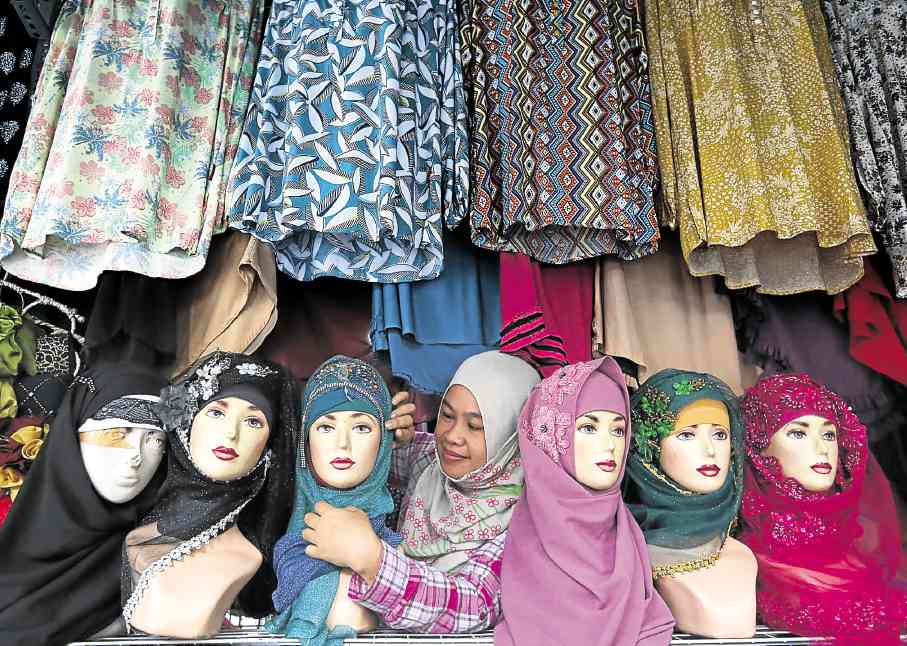Beauty in a scarf for Muslim and non-Muslim millennials

SCARF FASHION Amina Ameroding of Marawi City sells hijab at the Islamic Center in Quiapo, Manila, as Muslim communities celebrate World Hijab Day on Feb. 1. —MARIANNE BERMUDEZ
As the glitz and glamor of the Miss Universe coronation show got underway at SM Mall of Asia Arena on Monday, more than a dozen women, mostly students, gathered on the University of the Philippines Diliman campus for a photographic celebration of universal beauty and the hijab, the traditional female Muslim headscarf.
In a photo shoot called “Confidently Beautiful in a Scarf,” Muslim and non-Muslim millennials donned the colorful cloth that covers the heads of Muslim women to show support for World Hijab Day on Feb. 1.
The participants said they were moved by their awareness and understanding that transcend beliefs and their celebration of women’s individuality.
Danielle Madriaga, a Catholic civil engineering student, said the activity was timely as it promotes acceptance of people of different religions to counter the misogynistic and racist view of US President Donald Trump.
“I participated in this event because I think the world needs now more than ever to understand and feel the aura of love, acceptance, tolerance and mutual respect,” Madriaga said.
Article continues after this advertisementThe event was initiated by the nonprofit organization KRIS Library, which advocates peace and progress through education for children affected by conflict and poverty.
Article continues after this advertisementKRIS stands for Knowledge, Respect, Innovativeness and Service, and also happens to blend “Kristiyano” with “Islam.”
The hijab symbolizes a woman’s commitment to her faith. To cover oneself means self-respect and self-protection in Islam.
Muslim law student Sitty Macarambon said that the activity was empowering.
She said she always wore hijab in high school, took it off in college in UP, and realizing she should not stop observing Islamic practices, wore it again in law school.
“Women should pursue their dreams,” she said. “They should never allow negative influences or bashing discourage them because nothing is impossible with preparation, hard work and determination even if you belong to a minority.”
Another Muslim law student, Ayesha Alonto Mambuay, said she did not personally experience discrimination but people’s stares made her uncomfortable. This kind of event is an eye-opener for non-Muslims, she said.
“It was also a daily reminder for me to be a better Muslim than I was on Tuesday,” she said.
Industrial engineering student Tatjana Medina, a Catholic, said she supported her Muslim sisters.
“Muslims should not feel alone in the battle against discrimination,” Medina said. “I think that physical beauty easily fades away as age comes but being a good person will really last longer.”